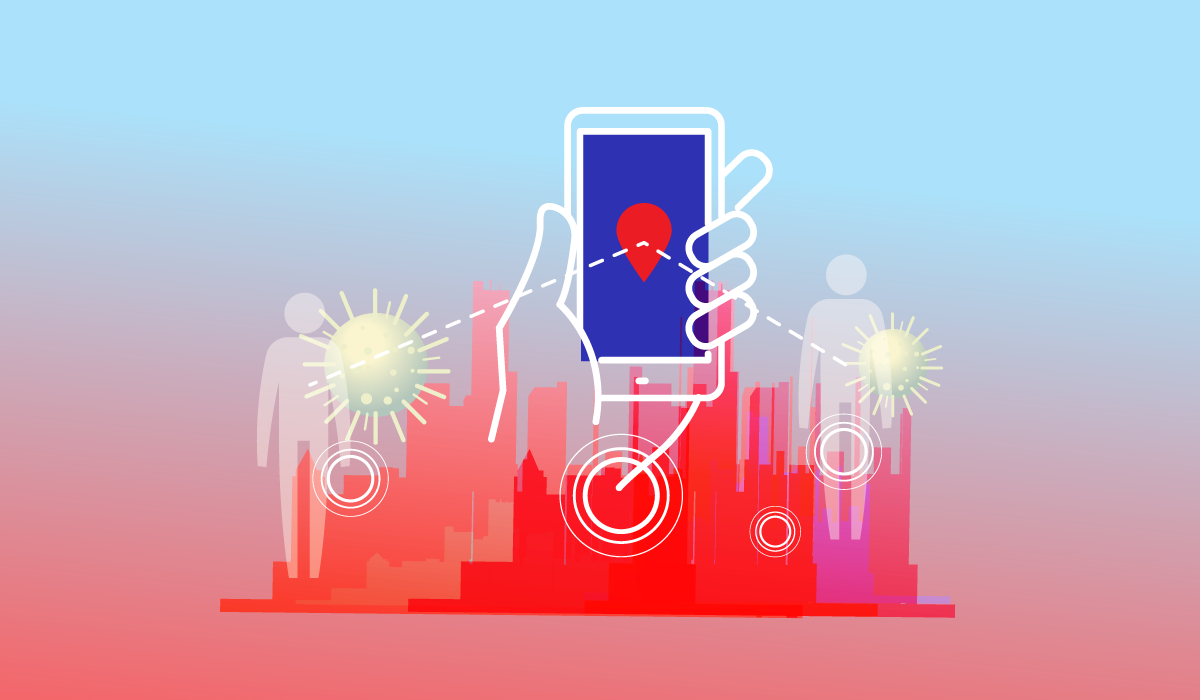
The government announced on Thursday that trials of its new coronavirus contact tracing app in England were underway, after spending months trying to develop technology that can effectively warn users about recent contacts with infected people.
The new app will use Bluetooth to alert individuals if they have spent 15 minutes or more near someone who has tested positive for Covid-19, the government said.
It will also help individuals assess their own level of risk by giving them detailed information about the infection rate in a given area, as well as enabling them to order a test and providing the results.
Pilots of the app have started with residents on the Isle of Wight, the site of past app trials, followed by the London borough of Newham.
The announcement comes days after Boris Johnson’s government rowed back on its centralised test and trace system, after it faced heavy criticism for failing to reach enough people to address concerns over a resurgence in the virus later this year.
On Thursday the government’s latest weekly test and trace data showed that while the proportion of people being tested was rising, there had been no improvements in the number of people being reached and told to self-isolate.
Although 95 per cent of people who tested positive were transferred to the contact tracing system only 79.7 per cent of those transferred were reached and asked to provide information about contacts, in line with stats from last week.
The announcement of a new app comes after a disastrous three months at the height of the pandemic when health secretary Matt Hancock championed controversial “homegrown” technology which would collect individuals’ data centrally to help the NHS identify spikes in infection.
As privacy campaigners raised concerns about the centralised data function, the prototype designed by the NHS’s digital innovation arm, NHSX, repeatedly missed deadlines for its rollout and was eventually found to be ineffective at identifying contacts between phones.
Ministers were forced to abandon it in mid-June when it emerged that the Bluetooth proximity detection system was only identifying around one in 25 contacts on Apple phones. The government agreed instead to follow the example of countries such as Italy, Germany and Austria in combining its own software with technology developed by Apple and Google.
In addition to the Bluetooth alert system, users of the new app in England will be able to scan bar codes at restaurants, pubs and other venues, so that the establishments can later be alerted if a client develops symptoms and tests positive for the virus.
If a user is told to self-isolate for 14 days, the app will also provide a countdown timer for them to monitor how much time has elapsed.
Unlike the previous app, the new version will not collect and store data centrally. Officials said the app is designed to “track the virus, not people”, and will therefore generate a random ID for each individual’s device, and will not hold personal information such as users’ names, addresses or dates of birth.
Concerns persist about the accuracy of the app, however, and that it might generate “false positives”, which would force users to isolate for up to two weeks even though they had not been at serious risk of infection.
The app developers said they had a high degree of confidence that it works, identifying over 99 per cent of Covid-positive contacts at less than five metres distance — a significant improvement on the previous defunct app. Though they conceded there were still some problems with accuracy at 2m distance.
Simulations found that around 30 per cent of cases will be missed when handsets are within 2m distance, and that four out of 10 people will be falsely notified about a close contact even though they have not breached the 2m barrier.
Reference: Financial Times
